Objectives and Goals
The objectives of the specialist memory clinic study are to increase the availability and accessibility of dementia care in rural and remote areas, to determine the acceptability of the one-stop clinic and of telehealth versus regular follow-up, and to develop culturally appropriate assessment protocols for assessment of dementia in aboriginal older adults. Our focus is on diagnosis and management of atypical and complex cases of suspected dementia, where an interdisciplinary team assessment is most needed.
The clinic streamlines assessment and diagnosis in order to reduce repeated travel over long distances and to shorten the time to diagnosis by coordinating an interdisciplinary assessment on one day.
| Current Clinic Staff | |
| Neuropsychologist and Clinical Director | Dr. Megan O'Connell |
| Neurologist | Dr. Andrew Kirk |
| Staff in Psychology | August Kortzman |
| Clinic Nurse | Whitney Harder |
| Psychometrist | Duane Minish |
| Physiotherapist | Jennifer Fairbairn |
| Clerical Support | Shelley Biller |
What to Expect
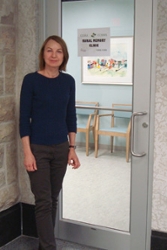
What to expect from a day at the clinic:
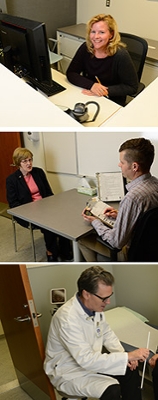 The clinic consists of a stream-lined, integrated one-day weekly clinic that includes an assessment by a neurologist, neuropsychology team, and physical therapist. Coordination of the patient, family, and team member activities is carried out by the clinic nurse and clerical support. The clinic follows a family-centred approach in which all interested family members are invited to participate. At least one caregiver must accompany the patient to assist with history taking and to provide essential information about the patient’s daily functioning. Two new patients are evaluated at each weekly clinic, with start times staggered at 8:30 AM and 9:00 AM and ending by 5:00 pm. At the end of the day, the referring physician can attend the end of day care conference via teleconference. Follow-up assessments vary based on need.
The clinic consists of a stream-lined, integrated one-day weekly clinic that includes an assessment by a neurologist, neuropsychology team, and physical therapist. Coordination of the patient, family, and team member activities is carried out by the clinic nurse and clerical support. The clinic follows a family-centred approach in which all interested family members are invited to participate. At least one caregiver must accompany the patient to assist with history taking and to provide essential information about the patient’s daily functioning. Two new patients are evaluated at each weekly clinic, with start times staggered at 8:30 AM and 9:00 AM and ending by 5:00 pm. At the end of the day, the referring physician can attend the end of day care conference via teleconference. Follow-up assessments vary based on need.
Benefits to the patient
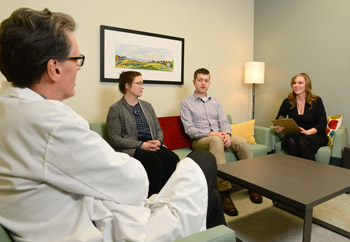
Following the interdisciplinary rounds at the end of the day, patients and family members meet with the neurologist and neuropsychology team. They are provided with information about the probable diagnosis, feedback based on the clinical assessment and investigations, and recommendations for management and care. Where appropriate, referrals are made to local support groups or services. Team clinicians prepare individual written reports that are collated and sent to the referring physician.
Referrals
Contribution to research
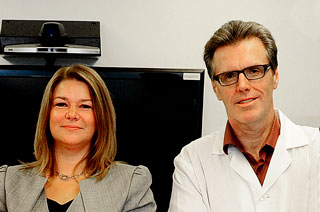
Clinical and evaluation data are centrally managed to enhance data quality and accessibility, and to facilitate interdisciplinary analyses that capitalize on the depth and breadth of data collected. There are several Rural Dementia Action Research team research projects that have emerged as a result of the memory clinic operation.
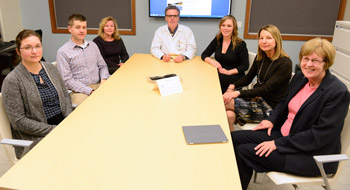
Publications from RRMC
Publications related to outcomes from the Rural and Remote Memory clinic can be found on the Publications Page under the sub headings:
RRMC Development
Caregiving
Cognition
Neuropsychology
Telehealth & Technology

